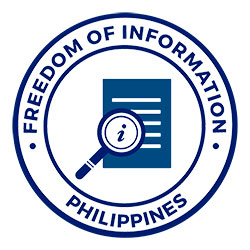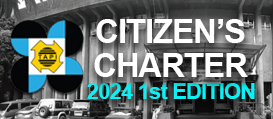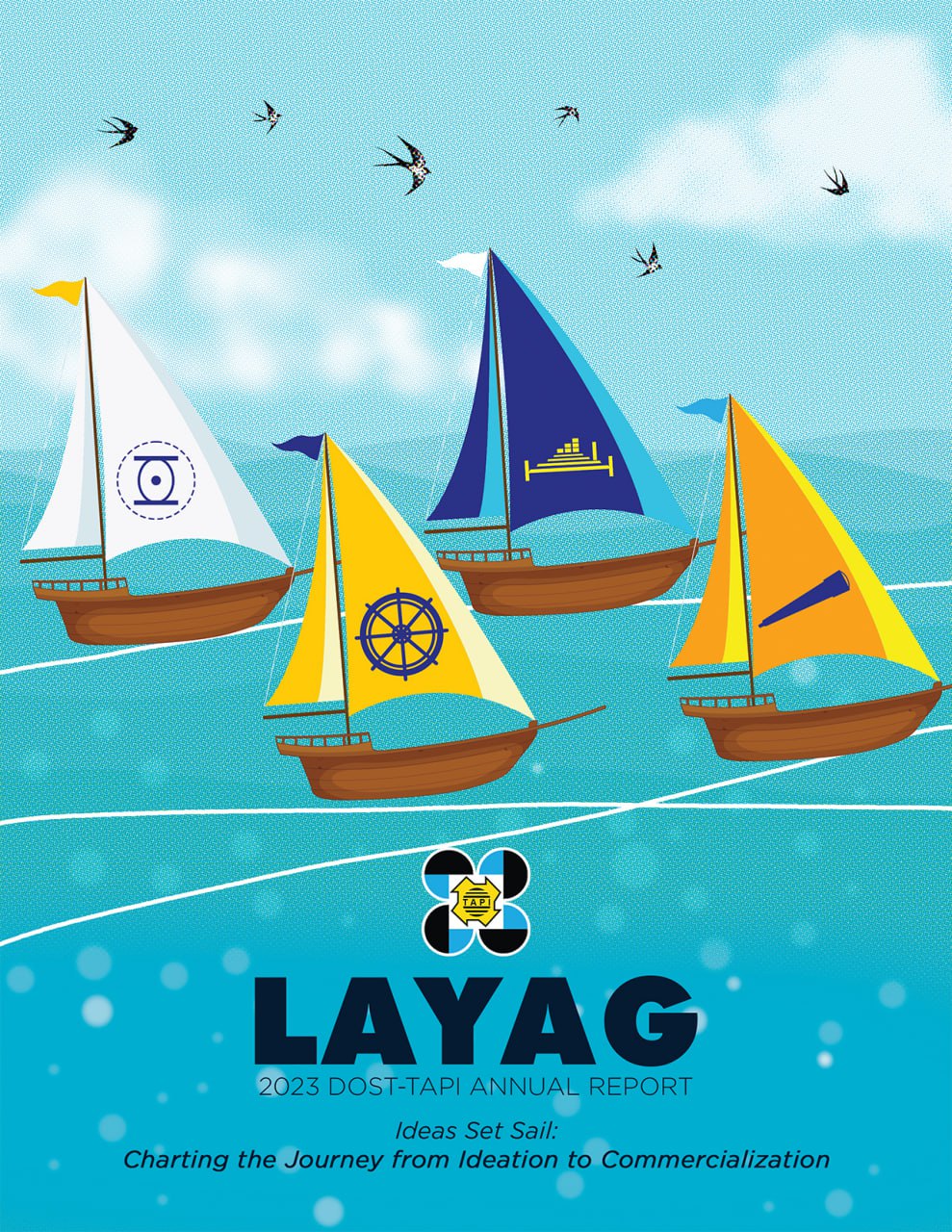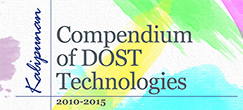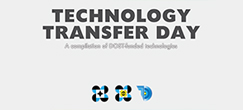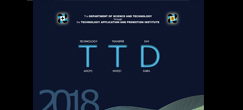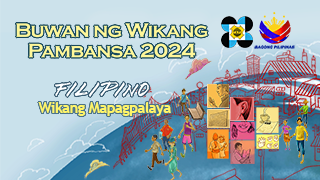By Sharah Ibrahim
Following a successful conduct in Region XII, the 2nd Stakeholders' Forum on Technology Transfer and Commercialization recently took place in Region XI. The forum continued its mission of fostering dialogue and collaboration among key players in the field of technology and innovation.
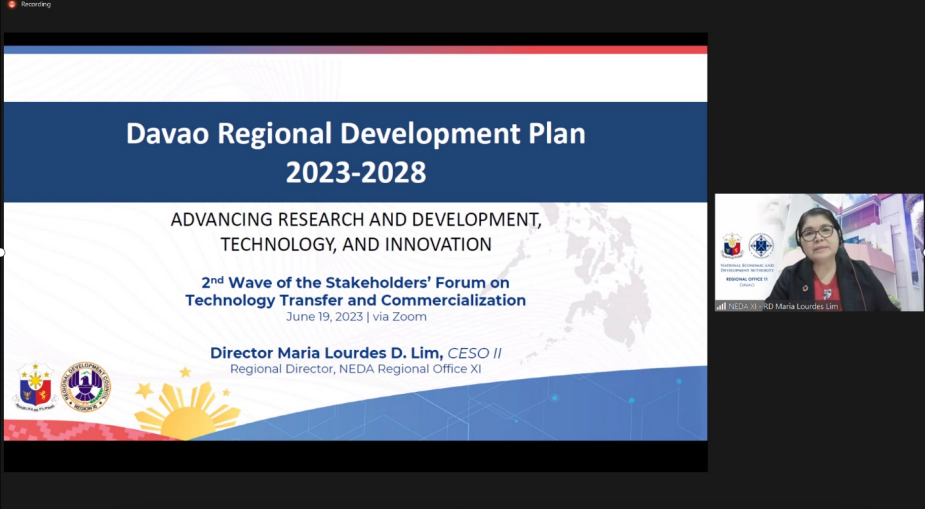
Ms. Maria Lourdes D. Lim CESO II, the Regional Director of NEDA Region XI started the forum by discussing the Davao region's mid-term plan for enhancing research, technology, and innovation.
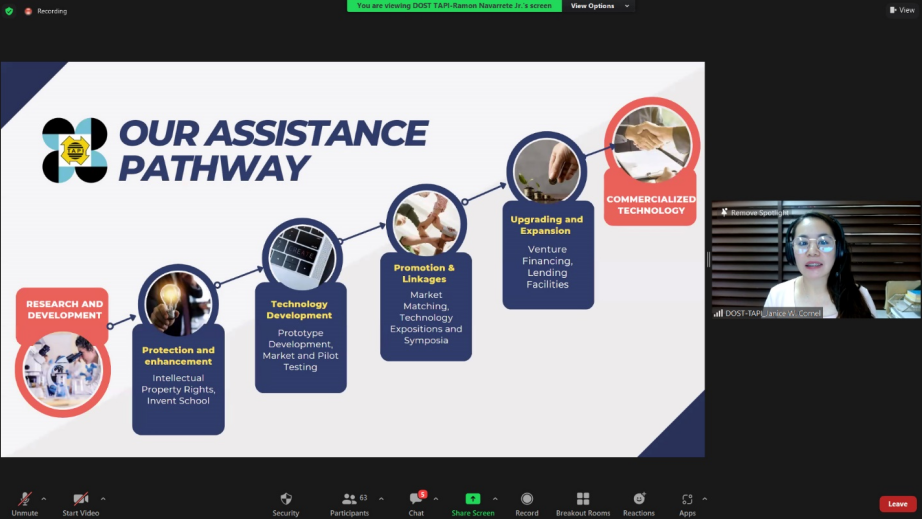
Following this, Ms. Janice W. Cornel, a Planning Officer III from the Department of Science and Technology's Technology Application and Promotion Institute (DOST-TAPI), provided an overview of DOST-TAPI's efforts in nurturing Technology Innovation Developments, Transfer, and Commercialization.
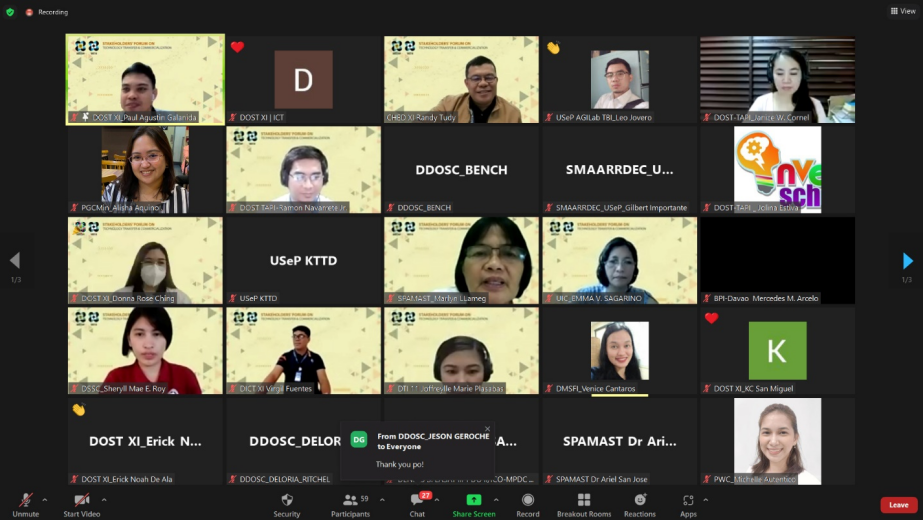
Region XI Representatives from the Academe, Research and Development Institutes (RDIs), Regional Line Agencies, Local Government Units (LGU), Private Industry, and MSMEs.
Ideation and Protection
The forum identified several challenges, including the difficulty of reaching remote areas and a general lack of understanding about technology transfer and intellectual property rights. To tackle these issues, participants suggested enhancing outreach efforts to LGUs, organizing intellectual property rights seminars, and setting up offices dedicated to promoting IP awareness and facilitating technology transfer.
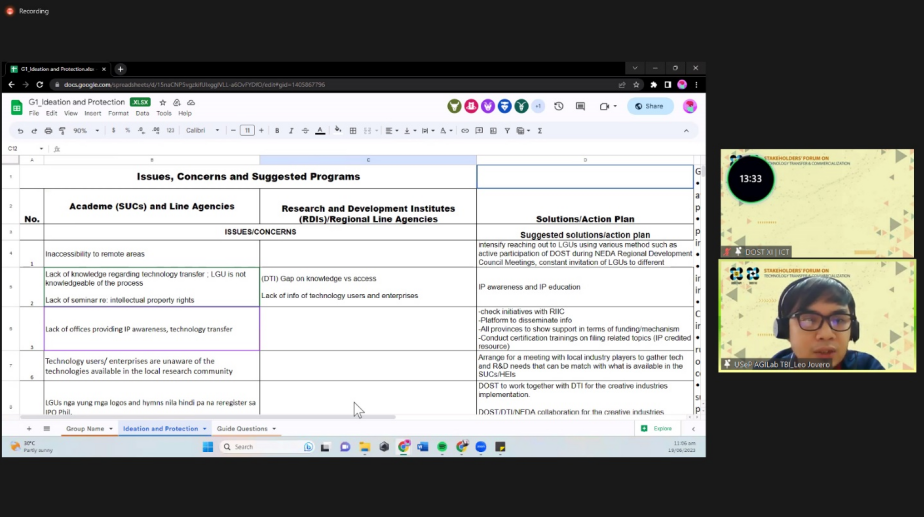
Participants presented their respective groups' identified issues, concerns, and suggested programs for the workshop.
Technology Development
From the academic sector, the most significant challenge identified was the difficulty in accessing funds. To address this, the forum proposed that DOST-TAPI could spearhead regular campaigns in State Universities and Colleges (SUCs) to provide Technology Development Training for Students. From the private sector's perspective, it was noted that some technologies require further validation in collaboration with the target industry, suggesting a potential role for DOST-TAPI in providing funding for this validation process.
Technology Transfer and Commercialization
The forum highlighted the need to increase the visibility of tech transfer offices in the region. Participants also suggested that financial support is needed to elevate the technology readiness level (TRL) of existing low TRL technologies that have potential for technology transfer and commercialization. Additionally, the forum emphasized the need for business development training for academics, as they may not necessarily have the business acumen or market expertise required for commercialization.
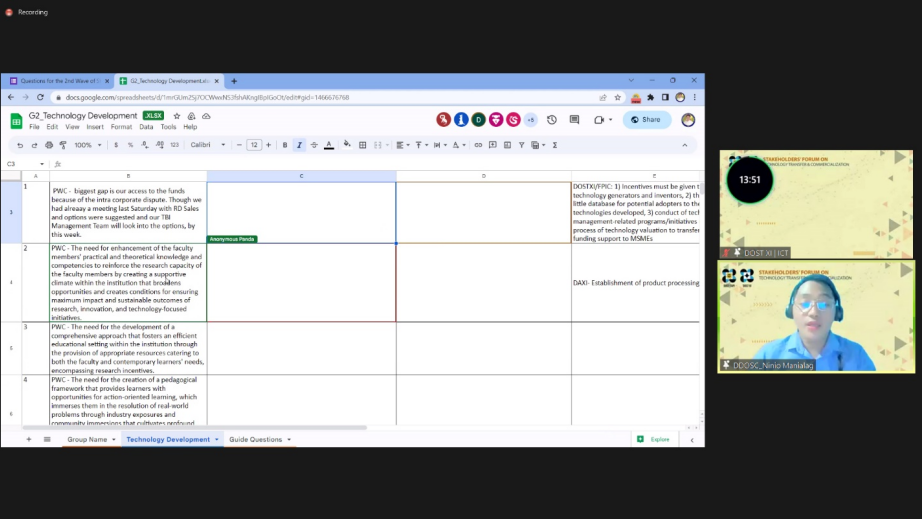
Participants presented their respective groups' identified issues, concerns, and suggested programs for the workshop.
Promotion and Utilization
The forum identified a lack of clarity in defining the target markets for ready technologies, which could hinder their effective promotion and application. Participants suggested investing time and resources in identifying specific sectors or groups that could most effectively utilize these technologies. The forum also discussed potential revenue generation strategies for ready technologies, citing examples from the University of the Philippines Mindanao (UP Min) and the University of Immaculate Conception (UIC).
The forum concluded with a discussion on best practices for promoting technologies to attract investors and adopters. Suggestions included engaging with local industry associations, cooperatives, and community groups, fostering close collaborations with LGUs, tailoring marketing strategies to local preferences, and building strong relationships with local investors, technology adopters, alumni networks, and other stakeholders.
The forum underscored the importance of government support in fostering the growth and development of technology participants in the country. However, it was also noted that government support alone cannot meet all the needs of technology participants. A more collaborative and integrated approach involving various sectors is essential for creating a thriving technology environment.


